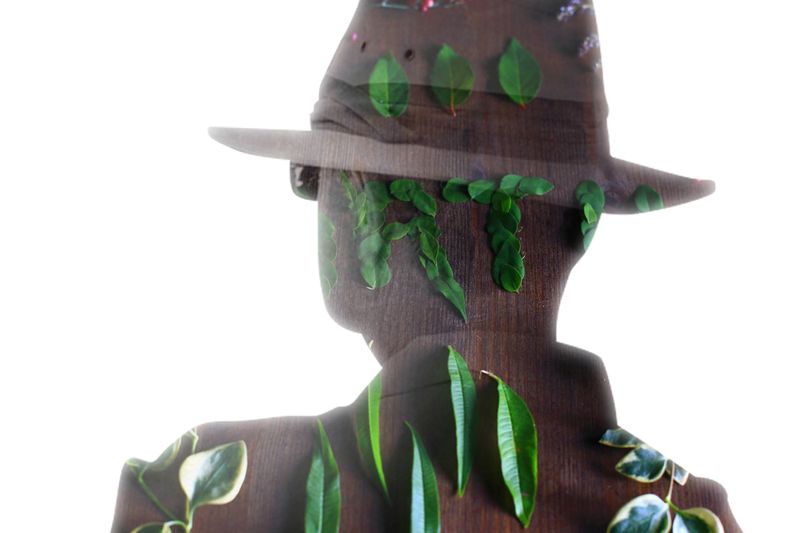Words to Live By

Nothing Lasts Forever, But a Little Longer Would Be Nice
A man named Conrad resided in a quaint coastal hamlet nestled between the undulating hills and the vast embrace of the ocean. An eccentric artist renowned for his unique interpretations of life through the lens of his creativity, Conrad embarked on a profound journey to encapsulate the essence of impermanence. His objective was to weave a narrative of fleeting moments, encapsulating the delicate dance between humanity and the natural world that cradled them.
Conrad's inaugural creation within this evocative series portrayed an unidealized figure; his back turned to the world. This enigmatic character, sporting sunglasses and a weathered hat symbolized a shielding from the harsh realities of the surrounding environment. Bathed in the intense light and surrounded by the untamed forces of nature, the image exuded an undertone of vulnerability, subtly alluding to the ephemeral nature of human existence.
The second installment in Conrad's artistic odyssey expanded the narrative's scope, revealing the Earth laid bare before the eyes of humanity. With a stroke of brilliance, he spelled out the word "Earth," transforming her logos into implicit symbols. Detached greenery surrounded this portrayal, fragments of life scattered across the canvas like poignant echoes of temporality. It served as a poignant reminder that our planetary abode is subject to the inexorable passage of time.
As the series reached its crescendo, Conrad's lens honed in on the Earth itself, positioning it as the focal point of his composition. This subtle shift in perspective conveyed a profound message – a yearning for a little more time, a plea to preserve the delicate equilibrium between humanity and the environment in the face of impermanence.
Intriguingly, Conrad infused his visual narrative with two poignant quotes, each amplifying the emotional resonance of his work. The first quote, attributed to E. M. Forster, underscored Conrad's belief that the beauty of the natural world should not remain a distant spectacle but should become an integral part of our everyday existence.
What is the good of your stars and trees, your sunrise and the wind, if they do not enter into our daily lives?
—E. M. Forster (1879-1970)
The second quote, by Emily Dickinson, added an air of mystery to Conrad's masterpiece. It hinted that the silence between the images spoke volumes, leaving ample room for viewers to immerse themselves in the profound depths of his artistic endeavour.
Saying nothing... sometimes says the most.
—Emily Dickinson (1830-1886)
Facing the dilemma of titling his opus, Conrad pondered between "Indigent Abundance," a paradoxical phrase encapsulating a world rich in natural wonders yet impoverished by neglect, and "Words to Live By," a title not only aimed at winning accolades but also at awakening a collective consciousness regarding the impermanence of our planet and the urgent need for stewardship.
As the judges deliberated on Conrad's entrancing work, it catalyzed conversations about the intricate interplay between humanity and the environment. His creation served as a resounding call to action, wrapped in the aesthetic allure of impermanence. It was a visual symphony imploring the world to cherish and protect the indigent abundance surrounding them before it dissipated into the recesses of mere memory.
The planksip Writers' Cooperative is proud to sponsor an exciting article rewriting competition where you can win part of over $750,000 in available prize money.
Figures of Speech Collection Personified
Our editorial instructions for your contest submission are simple: incorporate the quotes and imagery from the above article into your submission.
What emerges is entirely up to you!
Winners receive $500 per winning entry multiplied by the article's featured quotes. Our largest prize is $8,000 for rewriting the following article;

At planksip, we believe in changing the way people engage—at least, that's the Idea (ἰδέα). By becoming a member of our thought-provoking community, you'll have the chance to win incredible prizes and access our extensive network of media outlets, which will amplify your voice as a thought leader. Your membership truly matters!


